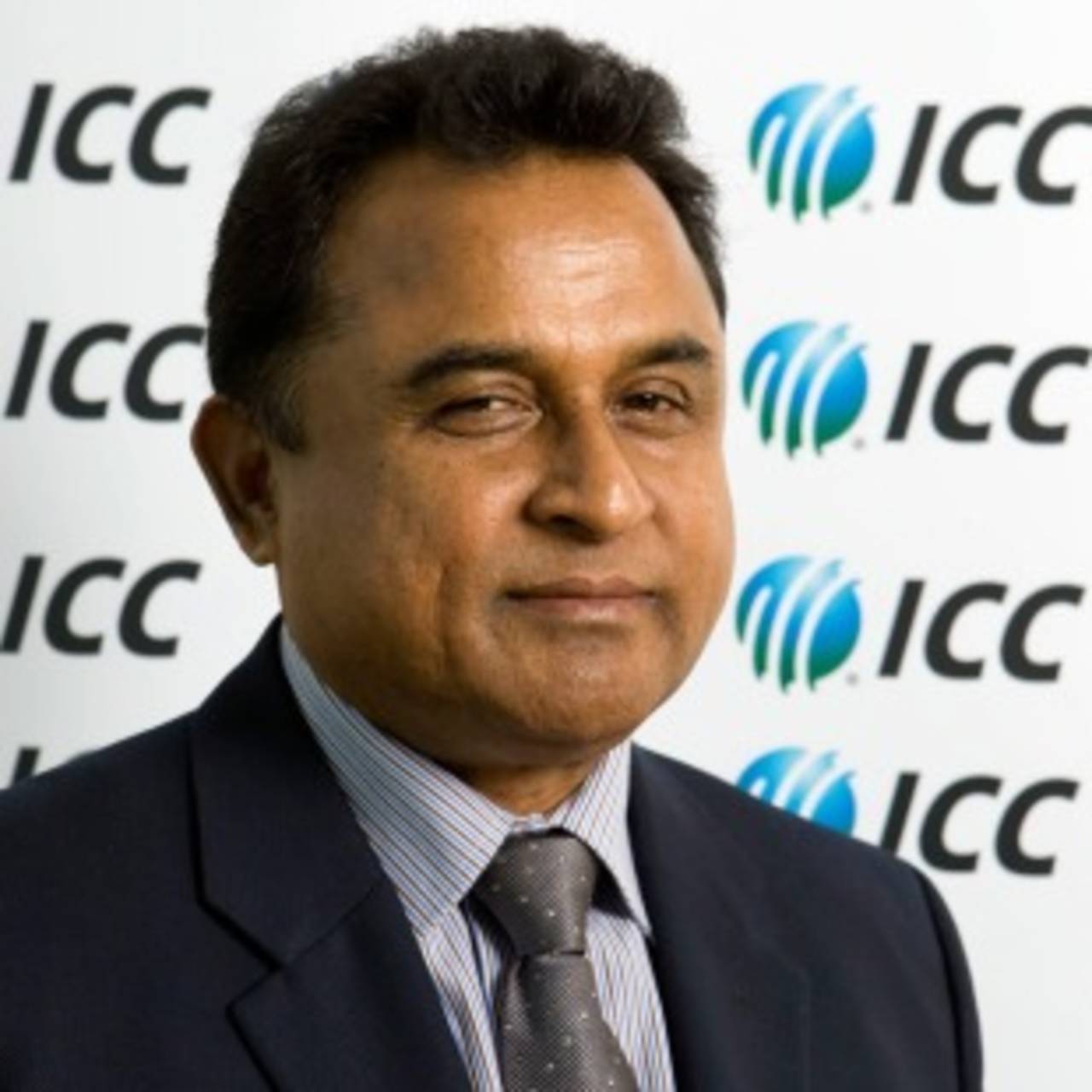Woolf report may challenge ICC status quo
The centrepiece of the two-day meeting of the ICC Executive Board meeting will be the presentation of the final report from the independent governance review of the ICC headed by Lord Woolf
Sharda Ugra
Jan 30, 2012, 5:20 PM

Mustafa Kamal's candidature for the ICC vice-presidency is one of the topics that will come up for discussion • Getty Images
The quarterly meeting of the ICC's Executive Board meeting due to be held on Tuesday and Wednesday in Dubai, will consider the nomination of a vice-presidential candidate to succeed the next ICC chief Alan Isaac, and discuss a change in prize money around Test cricket but most importantly, discover whether cricket has actually let a genie out of the bottle.
The centrepiece of the two-day meeting will be the presentation of the final report from the independent governance review of the ICC headed by Lord Woolf, the former chief justice of England and Wales. The report will contain a series of recommendations which will be discussed by the Executive Board before they can be put before the ICC's full house in future meetings. The most contentious of these recommendations is expected to be the inclusion of independent members on the ICC board and its various committees.
The Board will also discuss Pakistan and Bangladesh's nomination of Mustafa Kamal as their candidate to take over as the ICC vice-president from 2012 to 2014. If approved, Kamal's appointment will establish him as the ICC's president-elect to succeed Alan Isaac as the head of the ICC in 2014. Kamal's nomination follows current ICC procedure of a rotational handover of the ICC president-ship from region to region. There have been attempts the recent past to push for a change in the ICC constitution to allow the ICC president-elect appointment to be made through open candidature.
The independent governance review was part of a new strategic plan announced in April 2011 which was set into motion in August 2011. At the time, there was said to be an internal debate within the Board about the benefits of an independent review in itself. It was argued that the presence of the outsiders looking into the functioning of a tight clique of the ICC's Full Members was not necessary.
The Woolf panel is known to have spoken to more than 50 stakeholders around the world and sought the views of many more via written interviews. It presented an interim report at the last ICC Board meeting in October 2011. Until the February Board meeting, when BCCI president N Srinivasan is expected to meet with the members of the review panel, the only lone BCCI official who consented to be interviewed was vice-president Arun Jaitley.
The review panel questioned stakeholders about the governance of the ICC around issues of criteria and categories of its membership, the consideration of an independent committee of members and directors, the distribution of funding between members, and the presidential election process. Any recommended changes in these particular aspects of the ICC's functioning would be a challenge to the status quo. The Board will be aiming to strike a balance between making the report public and resisting recommendations that aim to distribute or dilute the powers now enjoyed by the Full Members.
In its October 2011 meeting, the ICC president Sharad Pawar said the Board, "had agreed to make the report public after it has met with Lord Woolf in February 2012." It is believed that player associations are very keen to see the full report and recommendations. The Woolf review has been the first time the ICC asked for external inspection of its own functioning. What has emerged from the findings of the Woolf report could prove difficult to keep under wraps especially since the recommendations will involve several interest groups amongst the members.
The debate about the presidential appointment could be one of them. The decision to put to vote any proposed amendment of the ICC's constitution around the appointment of its president was deferred at the ICC's annual conference in Hong Kong last June. While Kamal is said to be confident of enough support to see his nomination through, there is a possibility of the constitutional amendment being sought yet again during the Board meeting. England and India are on the same side in this argument and are keen to see the constitution amended in time for their own candidates to make a push for the presidency.
Another independent report up for discussion during the meeting centres around the ticketing issues that arose during the 2011 World Cup. The ICC would also deliberate over a proposal to increase prize money in Test cricket, intended to "promote Test match cricket in the period before the ICC Test Championship event in 2017".
The Board will also study reports about the ICC Global Cricket Academy, the implementation of Anti-Corruption Codes in domestic cricket, the adoption of a Safety and Security Code as well as an annual Ethics report. The ICC Board meeting in Dubai will be attended by the chairman or president of the 10 full members, but three representatives of the Associates, along with the ICC president Sharad Pawar, vice president Isaac and ICC Chief Executive Haroon Lorgat. The ICC's principal advisor IS Bindra has also been invited to attend.
Sharda Ugra is senior editor at ESPNcricinfo